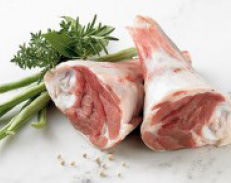Lamb
Lamb:
high-quality, lean and aromatic
Species-specific feed gives lamb its typical aromatic flavour, with the tender, juicy, bright red meat boasting impressive variety. Any lamb dish can give a consumer an extraordinary culinary experience, especially when it is seasoned with fine herbs and exotic spices. Lamb is relatively lean, contains valuable protein and contributes to a diet that is both balanced and enjoyable.
As a result, it is acquiring more and more fans. The individual parts are each suitable for being prepared in different ways. For example, the neck is perfect for delicious ragouts, hearty goulashes and nourishing stews such as the famous Irish stew. The neck meat is also tasty boiled and braised.
Leg
Makes a tasty roast
Legs of lamb should be hung for a considerable length of time, because this makes them tender and very soft. They are great for roasting and are best left on the bone, because the bone will hold the meat together and make it easier to carve.
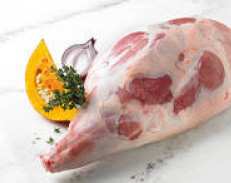
Shoulder
An all-rounder for both the kitchen and the barbecue
The lamb shoulder can be roasted or braised on or off the bone. It can also be used for rolled joints and pot roasts, as well as for meat skewers. Goulashes, lamb stews and nourishing vegetable soups are made with the lamb shoulder too.
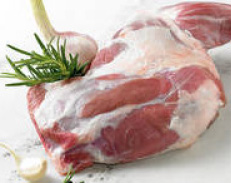
Neck
For delicious ragouts and stews
Lamb neck can be used to whip up delicious ragouts, hearty goulashes and, of course, nourishing stews such as the famous Irish stew. The neck meat is highly recommended boiled and braised too, however.
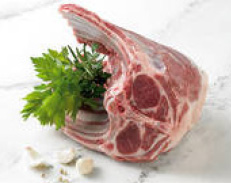
Breast
Hearty and nutritious
With its high fat content, the lamb breast is ideal for boiling, and stews, goulashes, ragouts and soups are the dishes best at bringing out its flavour. If cut into ribs, the breast also tastes good roasted or grilled.
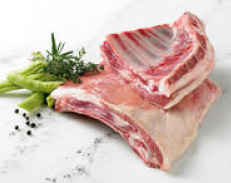
Loin
Versatile
A lamb loin can be roasted, sautéed, grilled or braised, with or without the bones. The loin is also where lamb chops and 2–3cm thick steaks come from. In addition, slicing a loin into pieces that each contain a bone will give you cutlets and rib cutlets.
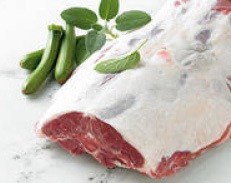
Eye of loin
The high-grade cut for sautéing
A lamb eye of loin is free of tendons and very lean. A boneless piece of meat removed from the backbone, it is a high-grade cut that’s suitable for sautéing.
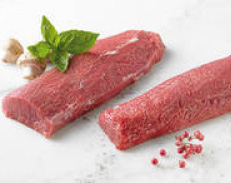
Fillet
The tenderest of all
The tenderest cuts of lamb are the fillets, which are pieces of meat taken from the loin cutlets. Small fillets are particularly popular with chefs, because they can be used for things like patty fillings. Lamb fillets are generally fried and cooked evenly on all sides.
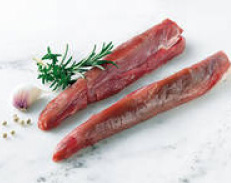
Shank
Good for roasting or braising
A lamb shank is the lower part of a lamb’s leg. They are excellent roasted or braised and are just the right size for one person.
